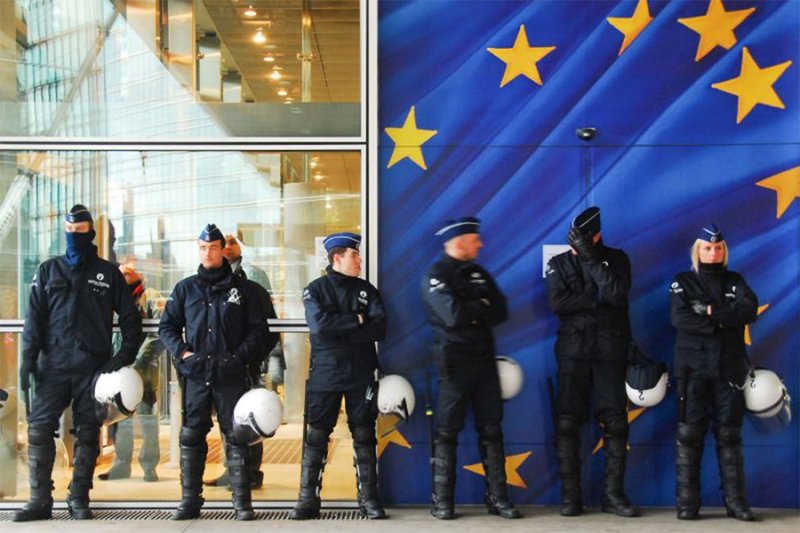Fostering International Cooperation: Highlights From the 2024 European Police Chiefs Convention
This week, Europol welcomed the global law enforcement community to its headquarters in The Hague for the annual European Police Chiefs Convention (EPCC), where key challenges facing modern policing were discussed.
Co-hosted this year by the Hungarian Presidency of the Council of the European Union, the annual EPCC serves as the leading platform for international police cooperation, facilitating meetings between senior police officials from EU Member States and around the world to address operationally relevant matters through bilateral discussions and plenary sessions.
Held over two days, from 24 to 25 September 2024, the event brought together more than 450 delegates from 50 countries, focusing on collaborative strategies to combat emerging criminal threats and enhance international cooperation.
This year, the EPCC featured two expert workshops in advance, followed by three high-level panels on priority issues: drug trafficking, online fraud and the impact of cyberattacks, disinformation and hybrid threats on policing.
Keynote speakers included Laura Kövesi, the European Chief Prosecutor; János Balogh, the High Commissioner of the Hungarian National Police, Drew Harris, Commissioner An Garda Siochana; Hans Leijtens, the Executive Director of Frontex; and Ivan Vyhivskyi, the Head of the National Police of Ukraine. As in previous years, a meeting of the Directors General of Customs Authorities was held alongside the EPCC to strengthen cooperation between law enforcement and customs authorities.
Bridging past and future
2024 marks Europol’s 25th anniversary, and the agency’s growth over the past quarter of a century has been intrinsically shaped by shifts in the criminal landscape. What began as a small European Drugs Unit in Strasbourg, France, in 1994 has evolved into an organisation with over 1 700 staff members and 295 liaison officers working collaboratively in The Hague towards the shared objective of keeping Europe safe from multiple forms of serious organised crime and terrorism.
In this context, discussions at this year’s EPCC focused on the evolving nature of several criminal threats, particularly in terms of their methods, scale and scope. A key overarching theme was the need for lawful access to data. Police chiefs acknowledged that the digital transformation of criminal and terrorist activities has driven a shift towards data-driven investigations. Senior officials concurred on the need to modernise law enforcement tools to access digital information and to refine data retention policies, while ensuring the protection of fundamental rights.
Several overarching conclusions emerged as common themes throughout the discussions:
- There is a critical need to focus on high-value targets to achieve operational success. Investigations that do not address the root causes of criminal organisations may temporarily disrupt their activities, but these activities will inevitably resurface in different forms or areas.
- While prevention alone is clearly insufficient, it remains a key component in the fight against organised crime. Public awareness was reaffirmed as a foundational element for effective prevention strategies.
- Technology firms, service providers and AI platforms have become essential players in shaping the landscape of internal security and crime fighting. Strong partnerships with private entities are crucial, along with a reliable framework for lawful access to data and the ability to manage and analyse large and complex datasets.
- The highly threatening evolution of hybrid threats deserves the attention of police chiefs. Finding a suitable role for law enforcement will be important, working alongside and complementing national security and intelligence services.
Celebrating innovation in law enforcement
Continuing the tradition of recognising excellence, Europol presented the 2024 Europol Excellence Awards in Innovation to highlight the most innovative projects in law enforcement. This year, law enforcement agencies from Croatia, Estonia and the Netherlands were honoured for their achievements in three categories: the most innovative initiative in ethics, diversity and inclusion; the most innovative operation; and the most innovative technical tool.
The winners were carefully selected by a panel that included Ylva Johansson, the European Commissioner for Home Affairs; the Police Chiefs of Hungary, Belgium and Poland; and Europol’s Executive Director, Catherine De Bolle.













